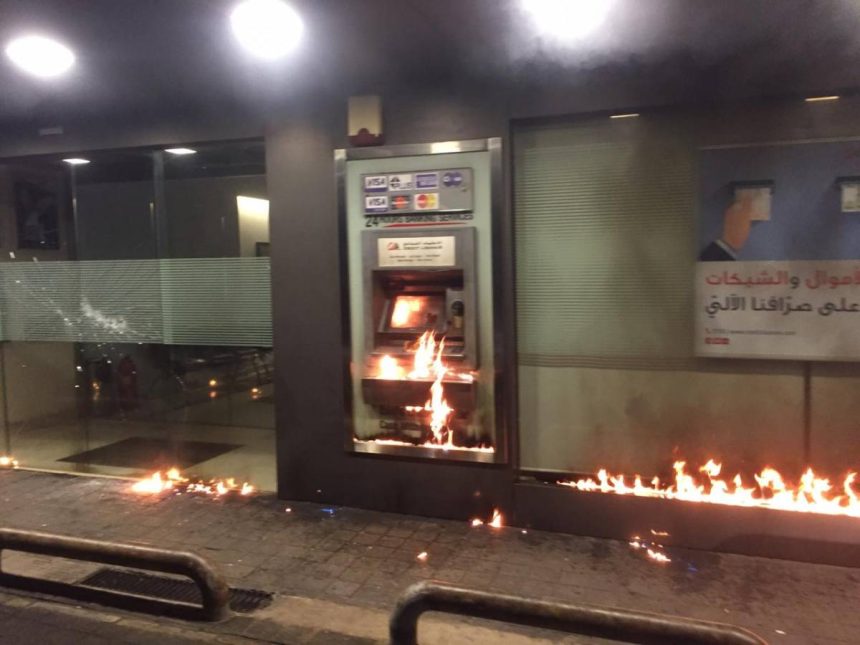Lebanon, once known as the “Switzerland of the Middle East” for its robust banking sector, continues to grapple with a deepening financial crisis that has left depositors in a state of despair. The severe economic downturn, currency devaluation, and lack of confidence in the banking and real estate sectors have resulted in limited options for individuals seeking to safeguard their savings. As a consequence, the country has witnessed a transition to a cash-based economy, exacerbating the numerous challenges it already faces.
LIMS has shed light on the dire consequences of this cash-centric economy. While gold and cash dollars have emerged as the preferred means for individuals to protect themselves against unforeseen emergencies, this shift poses significant risks. One of the most pressing concerns is the potential for widespread tax evasion. With cash transactions enabling individuals to obscure their financial activities and evade accurate reporting to authorities, the government’s tax revenues have experienced a sharp decline. Consequently, this phenomenon further bolsters the growth of the parallel economy, exacerbating Lebanon’s economic woes.
The proliferation of a cash economy also amplifies the risks associated with illicit financial activities, including money laundering. By facilitating transactions outside the purview of the formal banking system, the country becomes a breeding ground for individuals with illicit funds to operate freely, evading detection and contributing to the erosion of Lebanon’s financial integrity. Moreover, this transition to a predominantly cash-based economy has adverse effects on lending opportunities, hindering access to financial resources.
Beyond the immediate repercussions on the domestic economy, Lebanon’s banking crisis and reliance on cash transactions have far-reaching implications for the country’s international standing. The disruptions within the banking sector, coupled with concerns surrounding the transparency and integrity of financial transactions, may prompt correspondent banks to exercise caution when dealing with Lebanese entities. Consequently, reduced financial transactions and potential damage to Lebanon’s reputation loom as credible risks, threatening the nation’s global standing and exacerbating its isolation.
While the banking crisis has undoubtedly taken a toll on various sectors of the Lebanese economy, the real estate industry has been particularly hard-hit. LIMS reports a significant decline in the sector, with property prices plummeting by 30% to 60% depending on the type and location of the property. This sharp decline is closely intertwined with Lebanon’s broader economic collapse, as evidenced by the precipitous drop in the country’s GDP. From a once thriving $54 billion, Lebanon’s GDP has shrunk by a staggering 60% to a meager $20 billion at present. The revival of the real estate sector hinges upon the recovery of the banking industry, which would enable developers and buyers to access much-needed loans. However, given the current surplus of available properties and the prevailing economic challenges, a notable breakthrough in real estate development remains elusive.
- It Is Puzzling…Where And What Do The Lebanese Save? April 1, 2023: Leb Economy, Article AR
- Monetary Economy Is Dragging Us Towards Ruin: Lebanon Is Within The “Gray Zone” Soon, April 4, 2023: Naqd Lebanon, Article AR
- Real Estate Market Decreased By About 30 to 60%, Which Reflects State Of The Economy In Lebanon, April 14, 2023: OTV, TV Interview AR

